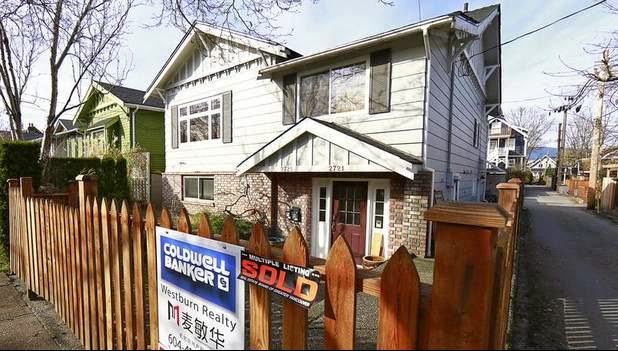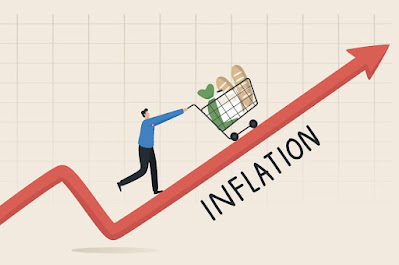Your House Is Not An Investment
 |
| Does this house look like it's worth $1.875M? |
He purchase this house in 1983 for $279,000 and sold it in February 2015 for $1,875,000.
I can almost see your reaction now.
Just wow... that's amazing!
What a return!
That's why real estate is a great investment, right?
Hold your horses... Using the rule of 72, the value of his house double nearly three times in 32 years. For the sake of simplicity, let's assume it'll reach a third double after 36 years. That's an average of one double every 12 years. That means the rate of return is at least 6% a year.
That can't be right!
Sadly, it is. Using some spreadsheet wizardry, you will find the actual rate of return to be 6.135% a year.
Still don't believe me? Take a calculator and multiply 279,000 by 1.06135 (the calculated rate of return) thirty-two times (the number of years) and you'll end up at around $1,875,000.
If you factor in inflation of 3%, you'll only looking at a yield of 3.135%. Ouch!
If instead, he took this money and invested it into the stock market (in a registered account where it is allowed to grow tax free), assuming an average yield of 9%, he'd have at least $4,000,000 instead of $1,875,000.
Waah, waah, waah! No bank will lend him $279,000 to invest in the stock market.
Okay, expand this analysis a bit. Let's assume he saved for a 20% down payment back in 1983 to avoid mortgage insurance. That's $55,800 for down payment and a mortgage of $223,200. Assuming he amortized the mortgage for 25 years, interest rates an average of 10% (with interest rates around 13-14% in 1983 and around 5-6% in 2003, let's assume an average of 10% over the lifetime of the mortgage), and a weekly payment option, his weekly payments will be $574.
Over the course of the mortgage, that would be $467,000 paid towards interest and $223,200 towards the mortgage itself.
After the mortgage is paid off, let's assume he puts the money towards index investing (in a registered account so his money grows tax free/deferred) and he averages a 9% return during this time, by the time 2015 rolls around, he'll have around $250,000.
Combined with the $1,875,000 sale of his house (and assuming no fees or commissions), he'll have a combined $2,125,000.
This is not factoring in cost of utilities, property tax, house maintenance, etc.
Now, let's look at the investing side.
Assuming he decides to take his down payment to invest instead and rents, let's say his average monthly rent between 1983 and 2014 is $1000 (relatively lower rents in the 80-90s to higher rent in 2014). Instead of paying $574 weekly for the mortgage, this leaves him with around $17,000 a year to invest.
Assuming the average returns for 1983-2014 is 9%, then after 32 years of investing he'll have $3,600,000. This is with a $55,800 initial balance and $17,000 in yearly contributions and zero borrowing. (If we assume a monthly rent of $1500, then he'll end up with at least $2,700,000, but seriously, I don't think rent averages that high in the past 32 years... not even in Vancouver).
With renting, there is also no property tax or home maintenance. Utilities are ignored in this example as I ignored it in the above example.
So turns out, I was wrong. He'd only have at least $3,600,000 instead of $4,000,000.
After going through some numbers, the article continues with the seller's story. They purchased some land for $198,000 and built a house for $800,000. they also have two adult children they wanted to help get into the housing market in Vancouver.
<pause>
That's another thing, even if you sell your house in a hot market, you'll either need to have another house (in this case the older couple does) or you'll need to buy another house in a cheaper area or you'll need to spend the capital gains in the same hot market (which is what they plan with their two adult children) or you'll need to rent*.
Unless you have some way of getting at the equity built up in your house or a way to generate cash flow from your home (renting out the basement or a room), your house is not an investment.
*When the real estate boom got out of hand in the Vancouver market, I read another article where one young family sold their house for over a million dollars and went back to renting. The proceeds of the sale (at least $700,000 as they purchased their home for $300,000) was then put towards investing. They determined that the value of their house was excessively high. They needed a bigger place to live for their growing family, but they were quickly priced out of the market. In the end, they decided to go back to renting, which was a smarter financial move for them as they now freed up the equity in their home for investing. Additionally, the amount they paid in rent was far lower than their future mortgage payments and property tax.


Comments
Post a Comment